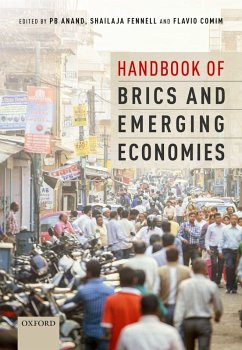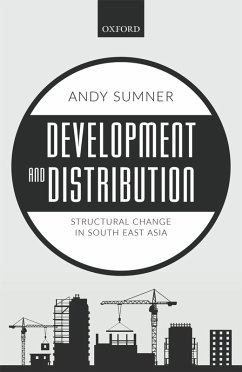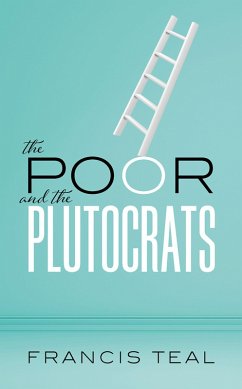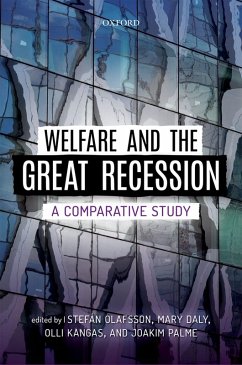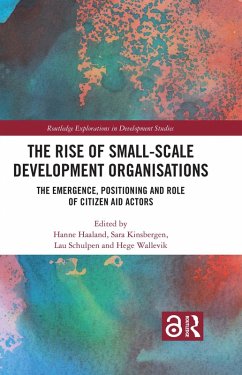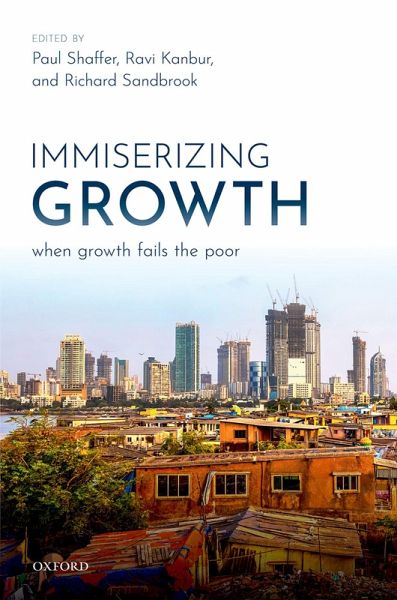
Immiserizing Growth (eBook, ePUB)
When Growth Fails the Poor
Redaktion: Shaffer, Paul; Sandbrook, Richard; Kanbur, Ravi

PAYBACK Punkte
34 °P sammeln!
Immiserizing growth occurs when growth fails to benefit, or harms, those at the bottom. It is not a new concept, appearing in some of the towering figures of the classical tradition of political economy including Malthus, Ricardo, and Marx. It is also not empirically insignificant, occurring in between 10% and 35% of cases. In spite of this, it has not received its due attention in the academic literature, dominated by the prevailing narrative that 'growth is good for the poor'. Immiserizing Growth: When Growth Fails the Poor challenges this view to arrive at a better understanding of when, wh...
Immiserizing growth occurs when growth fails to benefit, or harms, those at the bottom. It is not a new concept, appearing in some of the towering figures of the classical tradition of political economy including Malthus, Ricardo, and Marx. It is also not empirically insignificant, occurring in between 10% and 35% of cases. In spite of this, it has not received its due attention in the academic literature, dominated by the prevailing narrative that 'growth is good for the poor'. Immiserizing Growth: When Growth Fails the Poor challenges this view to arrive at a better understanding of when, why, and how growth fails the poor. Taking a diverse disciplinary perspective, Immiserizing Growth combines discussion of mechanisms of this troubling economic phenomenon with empirical data on trends in growth, poverty, and related welfare indicators. It draws on political economy, applied social anthropology, and development studies, including contributions from experts in these fields. A number of methodological approaches are represented including statistical analysis of household survey and cross-country data, detailed ethnographic work and case study analysis drawing on secondary data. Geographical coverage is wide including Bolivia, the Dominican Republic, Ecuador, India, Indonesia, Mexico, Nigeria, the People's Republic of China, Singapore, and South Korea, in addition to cross-country analysis. This volume is the first full-length treatment of immiserizing growth, and constitutes an important step in redirecting attention to this major challenge.
Dieser Download kann aus rechtlichen Gründen nur mit Rechnungsadresse in A, B, BG, CY, CZ, D, DK, EW, E, FIN, F, GR, HR, H, IRL, I, LT, L, LR, M, NL, PL, P, R, S, SLO, SK ausgeliefert werden.




